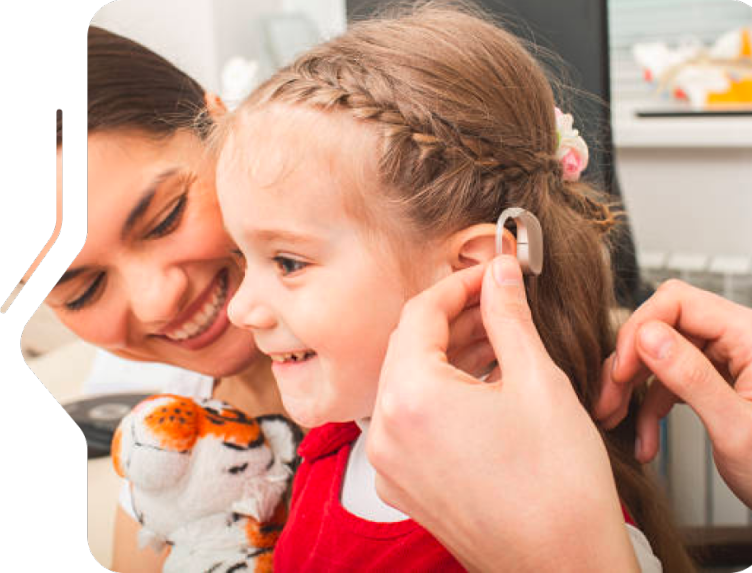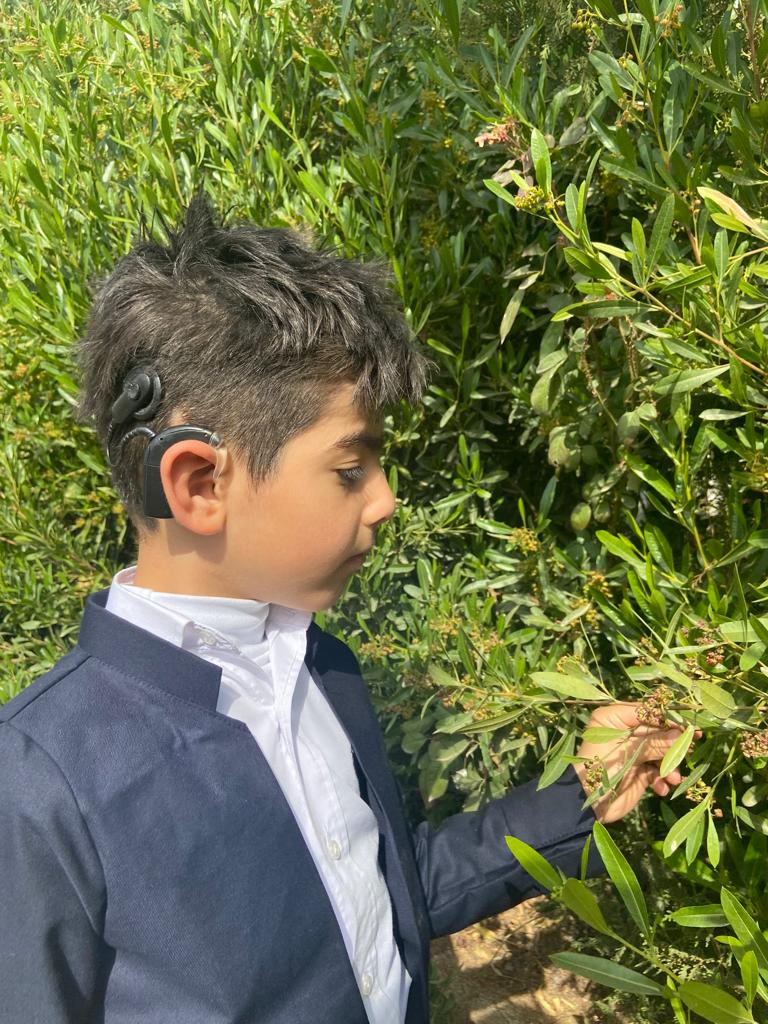Unlike hearing aids, which mostly make sounds louder, cochlear implants may further improve the clarity of sound and enhance your ability to understand conversations.
A cochlear implant system has two parts:
- The external sound processor
- Surgeons put the implant under the skin and attach it to an electrode array that’s placed in the inner ear.
Together, the sound processor and implant bypass the part of the ear that isn’t working, sending sound straight to the hearing nerve.
What Are the Benefits?
For children with severe to profound hearing loss, getting a cochlear implant early (preferably before age two) can provide sufficient auditory input to help develop speech and language skills.
For adults with moderate to profound hearing loss, a cochlear implant can help you regain your connection to hearing. Recipients say cochlear implants can improve their ability to talk on the phone, listen to music and socialise with family and friends. People also say they feel safer because they can hear alarms and traffic when crossing the road.
Cochlear implants are an established treatment option designed to provide a better hearing experience. The benefits of better hearing can include:
- Better understanding of speech
- More employment opportunities
- Improved safety
If Your Child Has Hearing loss
If you've been told your child has hearing loss, you may feel overwhelmed. That's normal. There is no right way to react to such news, so give yourself time and draw on the love and support of family and friends.
Although you may feel alone, there are many parents who've been where you are. About 34 million children worldwide have disabling hearing loss1 and up to five in every 1,000 babies are born with hearing loss or lose their hearing soon after birth.
Some Possible Signs of Hearing Loss in An Infant or Toddler
- Does not react to loud sounds.
- Does not seek out or detect where sound is coming from.
- Has stopped babbling and experimenting with making sounds.
- Still babbles but is not progressing to more understandable speech.
- Doesn't react to voices, even when being held.
| Age | Hearing and Understanding | Speech and Language |
|---|---|---|
| Birth to three months |
|
|
| 4-6 months |
|
|
| 7 months-1 year |
|
|
| 1-2 years |
|
|
Remember, some children with normal hearing may reach those milestones later. If you have any concerns you should speak to your child's health care professional as soon as possible.
Early Intervention For children
Babies and children learn to talk by listening to their parents and the world around them. When infants babble, it's part of their language development; they're experimenting with communication and mimicking the words they hear.
Hearing is essential to their language development, which affects how they interact with others and how they perform at school.
The earlier you treat hearing loss, the better chance your child will have to develop language equivalent to a normal-hearing child. Children who received cochlear implants at six months old display stronger language skills compared to those treated when they were two years old.












